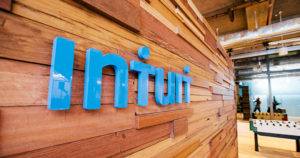Intuit’s Chief Executive Officer Brad Smith would like to call the small business, personal finance and tax software provider a 35-year-old startup. The Mountain View, Calif.-based company is repeatedly rated as one of the top 100 place to work for, listing at Number 11 on Business Insider’s ranking of best technology companies to work for in 2016.
Employees tout the company’s stellar benefits, along with the firm’s caring and fun work environment as far outweighing the challenges of being part of a high-growth and thus often fast-pace and evolving team.
Smith took the helm at Intuit in 2008, since then working towards cultivating an agile and innovative culture which allows the software provider to carry out its mission of improving the financial lives of its customers around the world, while staying ahead of Silicon Valley trends. Before Smith, former CEO Steve Bennett, who had a history at industrial conglomerate GE, was concerned with having Intuit act more like a mature company than a startup, focused on streamlining processes and improving operational efficiency. Only 4 out of the 50 products introduced in the last decade of his tenure grew to $50 million or more in revenues.
Smith immediately worked on sealing the innovation gap at Intuit, rolling out new products and making strategic acquisitions including recent deals with Acrede HR & Payroll Solutions, ZeroPaper S/A, Porticor Cloud Security and Playbook HR. The transformation expanded even to the company’s campus, which added a full-service gym, sports courts and cafeterias, to make work more enjoyable for employees working long hours.
Giving employees great perks, allowing them to dress how they please and take paid time off for volunteer work has helped make the tax software company a place of high morale and friendly staff, according to various sites such as Indeed and Glassdoor.
























